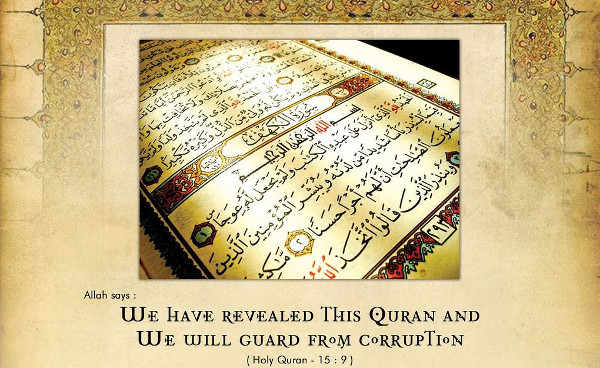
Introduction:
The Qur’an is the final revelation from Allah (God) to mankind — a book of guidance, mercy, and truth. Revealed to the Prophet Muhammad ﷺ over 23 years, it completes the chain of divine scriptures that began with the Torah, Psalms, and Gospel.Unlike earlier revelations, the Qur’an was divinely protected from corruption, preserved in both hearts and manuscripts — fulfilling Allah’s promise: “Indeed, it is We who sent down the Reminder, and indeed, We will guard it.”— Surah Al-Hijr (15:9)
The Qur’an: God’s Final Revelation:
Allah sent revelation to every nation through prophets — from Adam to Noah, Abraham, Moses, and Jesus (peace be upon them all). Each conveyed one consistent message: to worship Allah alone.The Qur’an confirms this timeless message and stands as the final, universal revelation for all humanity. “Say, ‘O mankind, indeed I am the Messenger of Allah to you all — to Him belongs the dominion of the heavens and the earth. There is no deity except Him; He gives life and causes death.’”— Surah Al-A‘raf (7:158)It also affirms the truth found in earlier scriptures while exposing distortions made by human hands:> “And We have revealed to you, [O Muhammad], the Book in truth, confirming what was before it of the Scripture and as a criterion over it.”— Surah Al-Mā’idah (5:48)
The Process of Revelation:
The Qur’an was revealed gradually over 23 years — addressing the evolving circumstances of the early Muslim community.The Archangel Jibreel (Gabriel) conveyed Allah’s words directly to the Prophet ﷺ:> “The Trustworthy Spirit has brought it down upon your heart, [O Muhammad] — that you may be of the warners.”— Surah Ash-Shu‘ara (26:193–194)This gradual revelation strengthened the believers and allowed them to internalize divine guidance step by step: “And those who disbelieve say, ‘Why was the Qur’an not revealed to him all at once?’ Thus [it is] that We may strengthen thereby your heart, and We have spaced it distinctly.”— Surah Al-Furqan (25:32)
Preservation Through Memorization:
From the beginning, memorization was central to Qur’anic preservation. The Prophet ﷺ himself memorized the revelation, and his companions (Sahabah) followed his example. He said: “The best among you are those who learn the Qur’an and teach it.”— Sahih al-Bukhari, 5027 Dozens of companions — including Ubayy ibn Ka‘b, Abdullah ibn Mas‘ud, Zayd ibn Thabit, and others — memorized the Qur’an completely. This oral transmission (known as tawātur) ensured an unbroken chain of reciters, preserving every word precisely as revealed.The Prophet ﷺ also reviewed the Qur’an with Jibreel annually during Ramadan. In the year of his death, this review occurred twice, confirming its final form.— Sahih al-Bukhari, 4998; Sahih Muslim, 2450.Today, millions of Muslims — including children as young as seven — have memorized the entire Qur’an in Arabic, maintaining a living, global preservation that no other scripture possesses.
Preservation in Written Form:
During the Prophet’s lifetime, revelation was recorded by appointed scribes, such as Zayd ibn Thabit, Ali ibn Abi Talib, and Mu‘awiyah ibn Abi Sufyan. They wrote on parchment, bones, palm leaves, and leather under the direct supervision of the Prophet ﷺ.After his passing, following the Battle of Yamamah (where many memorizers were martyred), Caliph Abu Bakr (RA) ordered a full compilation to safeguard the Qur’an.This task was assigned to Zayd ibn Thabit — the Prophet’s chief scribe.— Sahih al-Bukhari, 4986. The compiled manuscript was later preserved with Hafsah bint Umar (RA), the Prophet’s wife.During the caliphate of Uthman ibn Affan (RA), standardized copies were made from this master compilation and distributed to major Islamic regions — Makkah, Kufah, Basrah, and Damascus — ensuring unity of recitation.— Sahih al-Bukhari, 4987; Ibn Abi Dawud, Kitab al-Masahif.
Linguistic and Textual Consistency:
Over fourteen centuries have passed, yet the Qur’an remains identical across the world. Early manuscripts — such as the Topkapi Manuscript (Istanbul) and the Sana’a Manuscript (Yemen) — match today’s Qur’anic text precisely. Even non-Muslim scholars have recognized this phenomenon.Sir William Muir wrote: “There is probably in the world no other book which has remained twelve centuries with so pure a text.”— (The Life of Mahomet, 1878, Vol. 1, p. 22) The Qur’an itself challenges skeptics to produce anything comparable: “And if you are in doubt about what We have sent down upon Our servant, then produce a surah like it — and call upon your witnesses other than Allah, if you should be truthful.”— Surah Al-Baqarah (2:23)This linguistic miracle (i‘jaz al-Qur’an) remains unmatched — its eloquence, rhythm, and depth defy imitation.
A Living Miracle:
The Qur’an’s preservation is not confined to history; it continues every day.In every generation, millions memorize, recite, and teach it in its original language. No other book has ever been preserved through such a living community of believers.> “No falsehood can approach it from before it or from behind it; [it is] a revelation from the All-Wise, Worthy of Praise.”— Surah Fussilat (41:42)The Qur’an’s impact is both spiritual and intellectual — it guides the heart, shapes society, and continues to inspire scholars, poets, and thinkers across the globe.
Conclusion:
The Qur’an is the Word of God, revealed to the final Messenger ﷺ, preserved perfectly by divine will.It is the ultimate source of truth, morality, and spiritual healing. “This is the Book about which there is no doubt — a guidance for those conscious of Allah.”— Surah Al-Baqarah (2:2)To read the Qur’an is to hear the Creator speak — His message, unchanged and eternal.It calls every human being to faith, reflection, and submission to the One who created all things.
References:
1. The Qur’an: 2:2, 2:23, 5:48, 7:158, 15:9, 25:32, 26:193–194, 41:42
2. Sahih al-Bukhari: Hadith 4986, 4987, 4998, 5027
3. Sahih Muslim: Hadith 2450
4. Ibn Abi Dawud, Kitab al-Masahif
5. Al-Suyuti, Al-Itqan fi Ulum al-Qur’an
6. Sir William Muir, The Life of Mahomet, Vol. 1 (1878)

